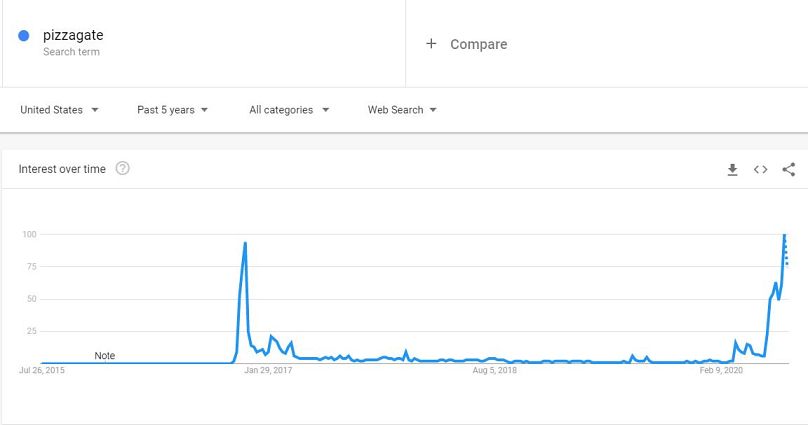In a statement to The Cube, Twitter confirmed that they have permanently removed seven thousand QAnon accounts to date for violating Twitter guidelines in relation to spam as well as platform manipulation.
Twitter has removed thousands of accounts linked to the conspiracy theory group QAnon, saying they pushed content that has the potential "to lead to offline harm".
In a statement to Euronews, Twitter confirmed they have permanently removed 7,000 QAnon-linked users to date for violating guidelines on spam and platform manipulation.
They estimate that approximately 150,000 accounts will be removed from the platform globally.
Twitter will also block links associated with QAnon content from being posted and will remove QAnon content and accounts from trends and recommended lists.
In a statement, Twitter said: "We will permanently suspend accounts tweeting about these topics that we know are engaged in violations of our multi-account policy, coordinating abuse around individual victims, or are attempting to evade a previous suspension — something we’ve seen more of in recent weeks."
This comes days after a baseless theory went viral suggesting that the furniture company Wayfair was running a human trafficking ring. Those spreading the theory pointed to overpriced furniture and the names of the products as their evidence for the claim.
What is QAnon?
"QAnon, as a core, is a group of conspiracy theorists centred around the belief that there is this malign 'deep state' organisation of satanic paedophiles that are looking to control the world and Donald Trump is the only hope in saving us," said Marc-André Argentino, a PhD candidate and associate fellow at the Global Network on Extremism and Technology.
The group began in 2016 in the lead-up to the US presidential elections where QAnon theorists amplified a baseless claim known as "Pizzagate" that suggested Democratic candidate Hillary Clinton was part of a child trafficking ring working out of a pizza restaurant in Washington DC.
Although the theory has been widely debunked, "Pizzagate" has once again become popular on search feeds, peaking in 2020 on Google Trends and trending on TikTok.
"Over the past six months, there has been a huge uptake in activity around this group in Europe," Argentino told Euronews.
"Some of the hotspots are Germany, Italy, France at the moment but they are present across Europe in approximately sixteen to seventeen different nations."
The QAnon conspiracy group has also started to enter mainstream US politics in recent months. US President Donald Trump has previously retweeted numerous QAnon followers.
Meanwhile, there are sixty-six present or previous 2020 congressional candidates who have either outwardly endorsed or have nodded toward QAnon, according to Media Matter's Alex Kaplan.
Click on the player above as Seana Davis in The Cube explains more.

